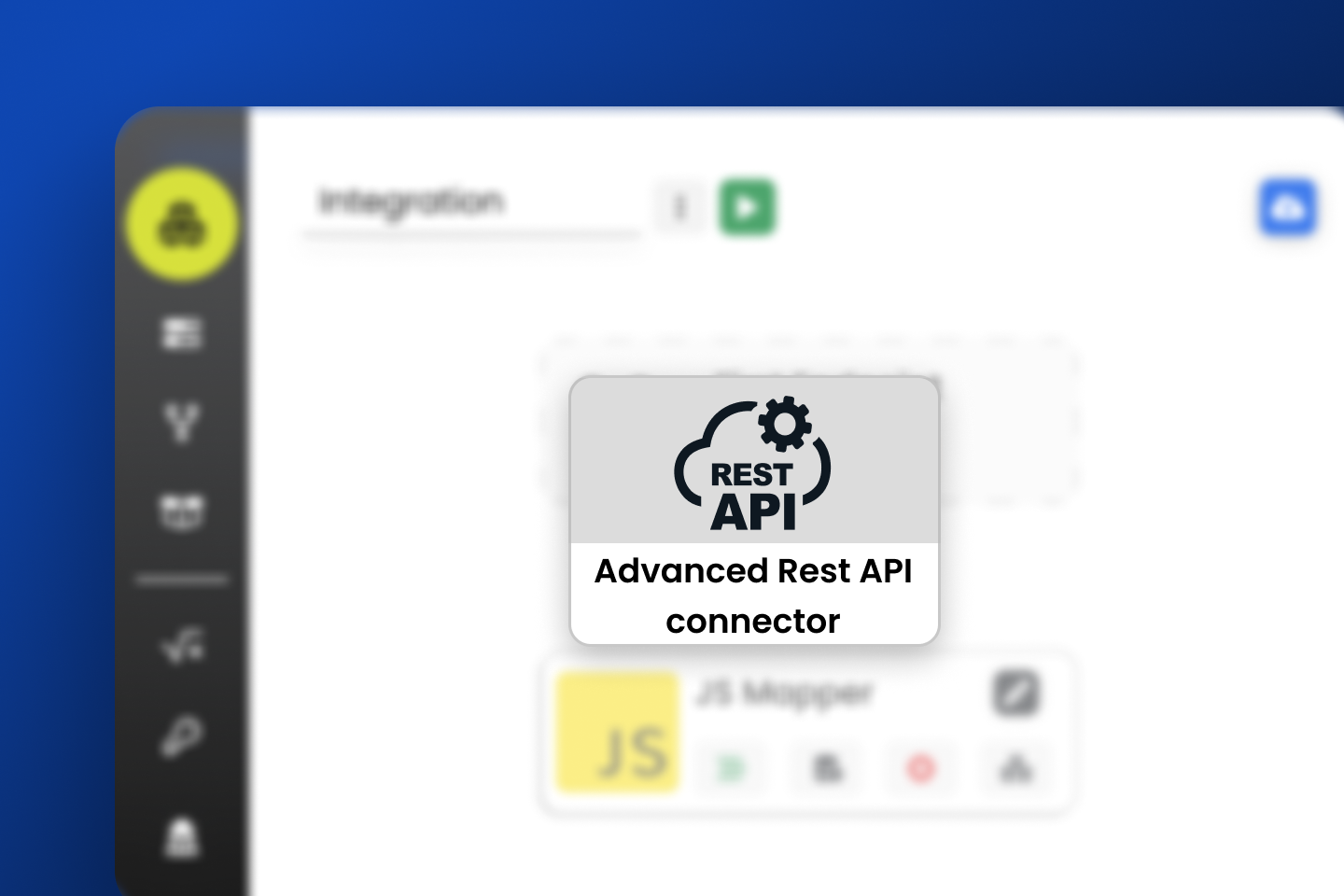Looking for inspiration on how to automate data retrieval and reporting using Integray? This real-world example shows how to fetch exchange rate data from a public API, convert it into an Excel file, and send it via email — all in just five simple steps.
This setup demonstrates how flexible and powerful Integray can be, even with a relatively simple use case.
🧩 Step 1: Get Data from a Public API
The integration begins with fetching currency exchange rate data from https://app.exchangerate-api.com. After a quick registration, you’ll receive a URL and API Key to access the data.
Connector Used:
Advanced Rest API Connector
- Enter the API URL and API Key.
- Set the Output format to JSON.
This step retrieves the raw data you’ll use in the following steps.

🔧 Step 2: Prepare Data for Excel Conversion
Next, the retrieved data needs to be pre-processed for Excel conversion.
Connector Used:
JS Mapper
- Input: Map the data output from Step 1.
- Output schema: JSON.
This step ensures that the data is structured correctly before it moves to the Excel conversion.

📥 Step 3: Convert Data to Excel
This step is simple and straightforward — just map the JSON data to an Excel format.
Connector Used:
JSON to Excel Converter
Output schema: Integray will auto-generate the Excel Data schema.
Input: Map the output from the previous JS Mapper step.

✉️ Step 4: Prepare Data for Email
Before sending the Excel file by email, the data must be packaged accordingly.
Connector Used:
JS Mapper
This step allows you to adjust or format the data to fit your email requirements.

📬 Step 5: Send the Email
Finally, the prepared file is sent via email using your credentials.
Connector Used:
Seznam SMTP Sender Connector
Map the data from Step 4 into the Input Mapping.
Provide login credentials.

💡 Final Thoughts
This setup is just one of many ways to create useful, automated workflows in Integray. The example combines public data access, simple transformation, and output via email — all without writing a single line of backend code.
It’s a great reminder that even small automations can save time and bring real value. Hopefully, it offers inspiration for your own integrations!
